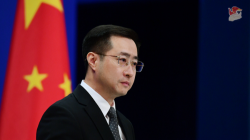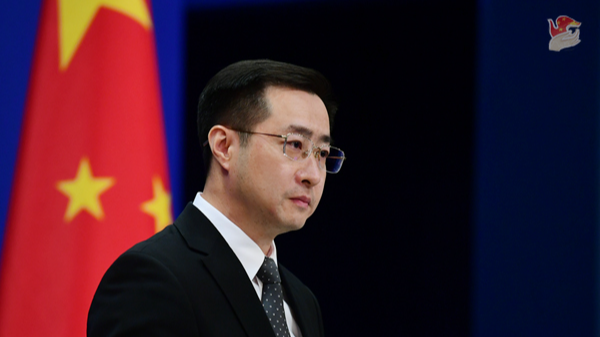Chinese Foreign Ministry Declares NATO Unwelcome in Asia-Pacific Region
Asia-Pacific nations reject the idea of an Asia-Pacific NATO, stating they do not welcome NATO's involvement in the region.


Countries in the Asia-Pacific region have made it clear that they do not welcome the involvement of the North Atlantic Treaty Organization (NATO) in regional affairs, according to statements made by Chinese Foreign Ministry spokesperson Lin Jian during a regular press event on Wednesday. Lin underscored that the region has no need for what he termed an "Asia-Pacific NATO," emphasizing a collective stance against external military alliances expanding their influence.
Lin's comments came in response to recent remarks from a European leader at the Shangri-La Dialogue, where comparisons were drawn between the Taiwan situation and the Ukraine conflict. The European official also referenced the so-called China threat in the South China Sea and raised the potential for NATO to become more engaged in Asia-Pacific security. In reply, Lin asserted that such comparisons are misleading, stating, "Taiwan is an inalienable part of China's territory, and the Taiwan question falls entirely under China's internal affairs." He rejected any attempt to link the Taiwan issue with the ongoing war in Ukraine, firmly calling for respect for China's sovereignty and the longstanding one-China policy.
Lin further addressed concerns over the South China Sea, maintaining that the current situation remains "generally stable" and that freedom of navigation and overflight continues without obstruction. He reiterated that China supports resolving maritime disputes through negotiation and consultation with directly involved parties, based on historical facts. Lin urged countries outside the region to refrain from intervening in regional matters or inflaming tensions, instead calling for continued dialogue among Asia-Pacific nations.
Turning his attention to NATO, Lin emphasized that as a regional defensive pact, NATO has "no right to reach beyond the geographical scope and mandate defined by its treaty." He voiced China’s firm opposition to what he described as NATO’s attempts to extend its influence eastward into the Asia-Pacific, warning that such moves risk fueling confrontation and undermining peace and stability both regionally and globally.
Lin highlighted that Asia's rapid economic growth and development have been driven by cooperation among countries in the area, making it a model for global progress. He reaffirmed China’s commitment to amity, sincerity, mutual benefit, and inclusiveness in its regional diplomacy. Stressing that China rejects any notion of bloc confrontation or a pursuit of spheres of influence, Lin called on all relevant parties to set aside Cold War-era thinking.
In concluding remarks, Lin urged foreign actors not to misinterpret regional relations or sow discord among Asia-Pacific countries. He insisted that the focus should be on contributing to the peace, stability, and prosperity of the region, stating that such contributions would better serve the interests of all countries involved.




